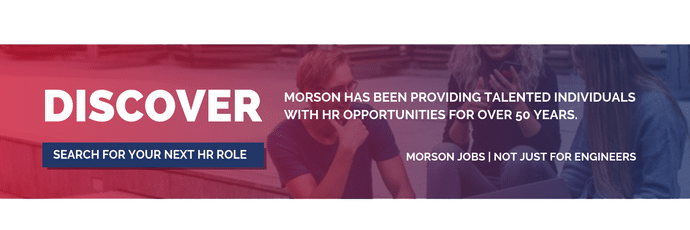
As more and more companies adjust to the agile working model, the need for HR Consultant jobs is likely to continue its upward trajectory. To meet the rapid demands of 21st Century commerce, many companies need quick solutions to problems as and when they occur.
Rather than hiring a permanent HR professional, such as a HR Manager or HR Business Partner, which can be costly and sometimes unnecessary, companies are preferring to hire HR Consultants / HR Advisors who can quickly asses their needs and offer business solutions based on HR functions. Because of this, HR Consultant careers are becoming increasingly more popular within new and exciting industries.
Human Resources Consultants can work closely with a HR team or alone on a full time or part time basis. This way of agile working means that a HR Consultant can work across an entire company to deliver key HR processes and policies to improve the overall performance of an organisation.
Finding the Right HR Consultant Jobs for you
Despite the growing demand, finding the right jobs suited to your specific skillset can often be a difficult and time-consuming task. Breakdowns in communication can often lead to missed opportunities between employers and candidates. In order to match the right professionals with the right HR Consultant jobs, requirements from both parties must be understood and considered throughout the entire recruitment process.
Many companies looking for a high level HR Consultant to join their operations may not possess the knowledge that a senior HR professional has. One issue can sometimes turn into a thousand once a Consultant has assessed the entire situation. This can often require the expertise of a HR generalist rather than a HR specialist to create solutions to several underlying problems. So, diversity in skills is key!
What are the most common HR Problems?
Talent acquisition and retention are two major HR functions that if not managed correctly, can considerably prohibit an organisation’s growth. It is often a central aspect of the Consultant’s role as a HR specialist to assess the entire acquisition process and company policy. Then, depending on the scope of work, implement changes to improve the overall retention and acquisition performance.
Another example could be the way in which an organisation aligns its HR team with the central function of the company. For many successful companies the HR department is the hub of the business. Without a solid internal structure many companies are destined to crumble. Some companies don’t even know what the problem is until a HR Consultant is brought in, identifies it and offers a solution.
This process suits the small agile business models of a growing number of organisations, where the majority of business can be done digitally, without the need for huge headquarters and a large workforce.

Benefits of Becoming a Consultant
One of the key benefits of becoming a HR Consultant is the flexibility of work. You have the freedom to accept or decline work and work on your terms. Many people worry that becoming their own boss isn’t a secure way of earning a living. However, there are thousands of companies across the UK offering different types of contracts. It’s far from day rates and cash in hand work. Many companies offer 12-month contracts for a typically higher salary than what they would pay a permanent employee.
Money is another benefit. Typically, consultants earn more than their permanent counterparts due to their ability to work flexibly, level of expertise and fresh pair of eyes. The annual salary for a HR Consultant compared to another permanent senior HR professional is higher on average by around £5,000 to £10,00.
Common Requirements for HR Consultant Jobs
Skills:
Leadership - working with new team members and leading projects and implementing change.Communication - communicating with employees at all levels to deliver projects and understand what is needed.Ability to work under pressure - working with different companies of all different sizes can sometimes result in stressful situation.Ability to think on your feet - be able to work agilely and react to situations as and when they happen.Computer literacy - every company uses computers and HR departments can significantly improve their operations through computer systems.
Education:
In most circumstances attaining a related degree is the educational minimum for most senior HR Consultants. This however can depend on a consultant’s level of professional expertise or the scope of work that needs carrying out. Sometimes a degree may not be necessary. However, other times a degree or even post graduate degree may be required.
BSc Bachelors Degree in Human Resources (or a similar business related degree)
Accreditation:
There are a number of internationally recognised certification and training organisations, each of which offer different levels of training and accreditation. They range from introductory to post-graduate degree levels. They offer not only a chance to gain a deeper understanding of the HR profession, they also make your personal portfolio as a consultant more competitive within the marketplace.
Senior Professional in Human Resources (SHRM - CP)
SHRM Senior Certified Professional (SHRM - SCP)
SHRM Certified Professional (SHRM - CP)
Professional in Human Resources (PHR)
CIPD Diploma in Learning & Development
CIPD Certificate in Human Resources Practice
CIPD Certificate in Human Resource Management
Average Salary for a HR Consultant
HR consultant salaries can vary depending on the individual business, industry and often the scope of work needed. The average salary is also more difficult to determine as consultants are typically paid on an hourly rate.
The average salary for HR consultants in the UK is between £29,000 to £75,000 per annum.
Whether you are an experienced HR consultant or are looking to starting your consulting career path, we have opportunities suited to you. For more information get in touch with us today on0161 707 1516orsearch jobs here.
















